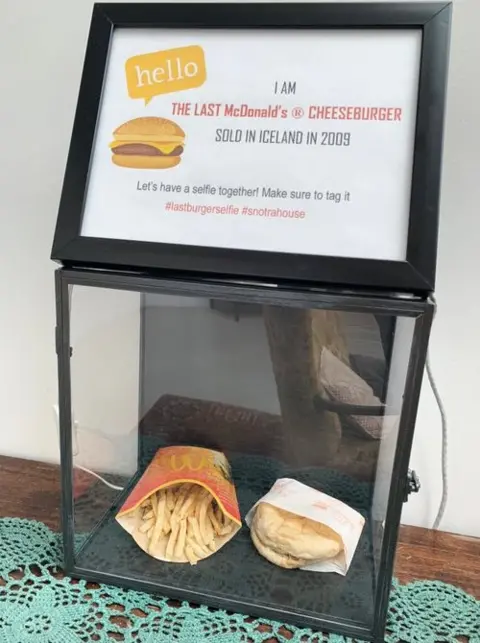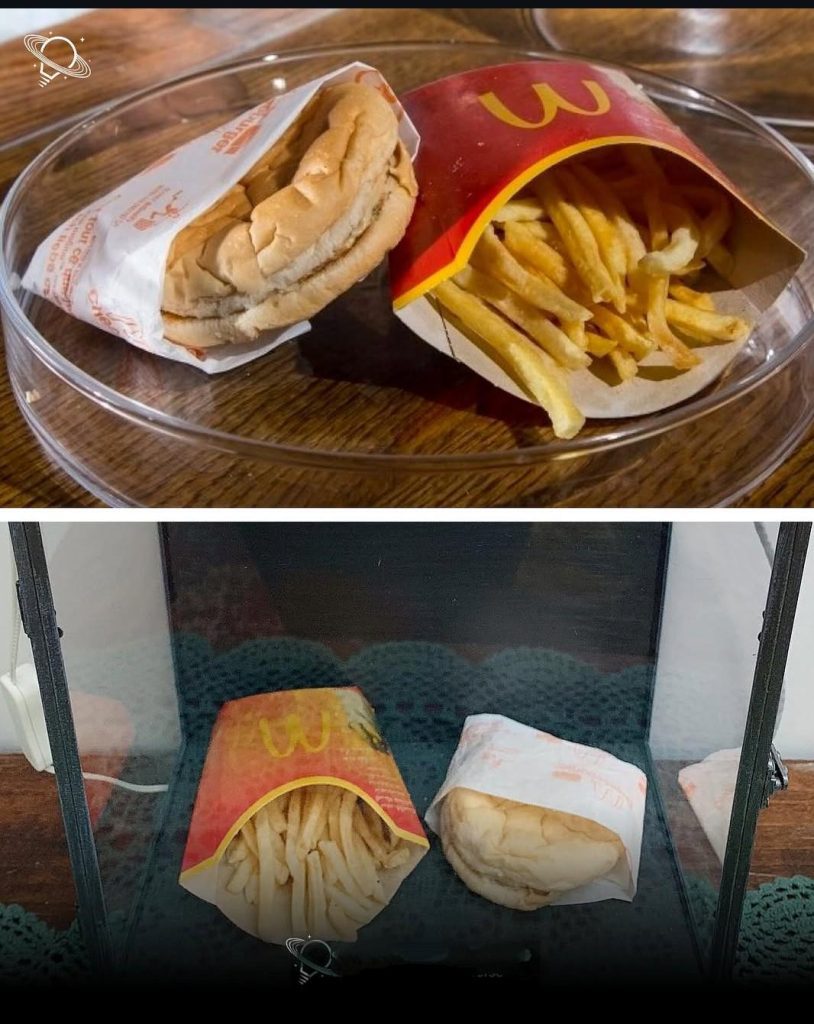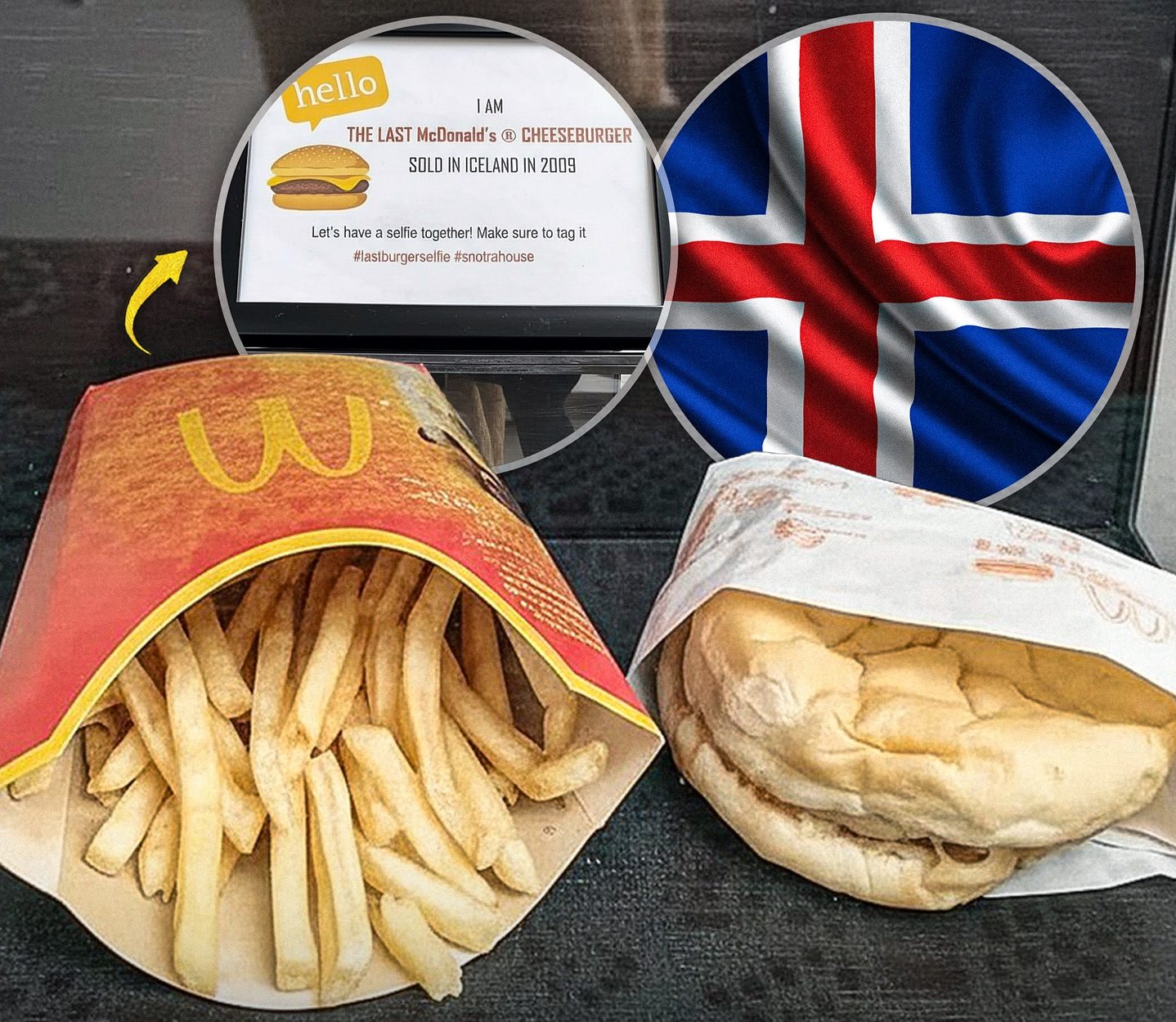Iceland’s Last McDonald’s Closed in 2009, and the Final Burger Still Sits on Display—Untouched and Immortal
Sometimes, the most unexpected things become time capsules. A photo. A letter. Or, in this case… a cheeseburger.
In 2009, McDonald’s shut its doors in Iceland for good. The reason wasn’t a scandal or a boycott—it was something more mundane but equally powerful: the global financial crisis. Iceland’s economy had taken a nosedive, and importing the ingredients required to maintain the McDonald’s standard became simply too expensive. And so, quietly and without much fuss, the fast-food giant pulled out of the country.
But something stayed behind.
On the last day of operations, a man named Hjörtur Smárason bought a cheeseburger and fries—not to eat, but to save. He had heard rumors that McDonald’s food never really decayed, and he was curious to see if that was true. So he placed the meal in a plastic bag and stored it in his garage. Days turned into weeks, weeks into months, and still… no mold. No rot. No smell.

Eventually, the “immortal burger” found a new home—on public display at Snotra House, a small guesthouse in South Iceland. Today, over 15 years later, that same burger and fries sit inside a glass case, seemingly frozen in time. There’s even a live webcam feed where people can tune in 24/7 just to check on its condition. Tourists visit it like a quirky museum exhibit, snapping selfies and leaving in disbelief. It’s no longer food—it’s folklore.
And perhaps that’s why this strange little story resonates so deeply. It’s not just about fast food or preservatives or a defunct franchise. It’s about how something as trivial as a cheeseburger accidentally became part of a nation’s history. In a world obsessed with what’s new, fresh, and trending, this old, dry, shriveled meal reminds us that time doesn’t always erase everything. Sometimes, it preserves it.

What’s even more poetic is that Iceland still doesn’t have a McDonald’s today. Over a decade later, the country never brought it back. Other chains have come and gone, local restaurants have thrived, but McDonald’s remains a relic of the past—its final meal trapped behind glass like a museum artifact.
People come for laughs. Some come out of curiosity. But everyone leaves with the same thought: how is it still there?
Maybe the burger didn’t rot, but what it truly preserved was a moment in time—a turning point in Iceland’s economic journey, a cultural shift, and a little reminder that sometimes, the oddest things become the most meaningful.

